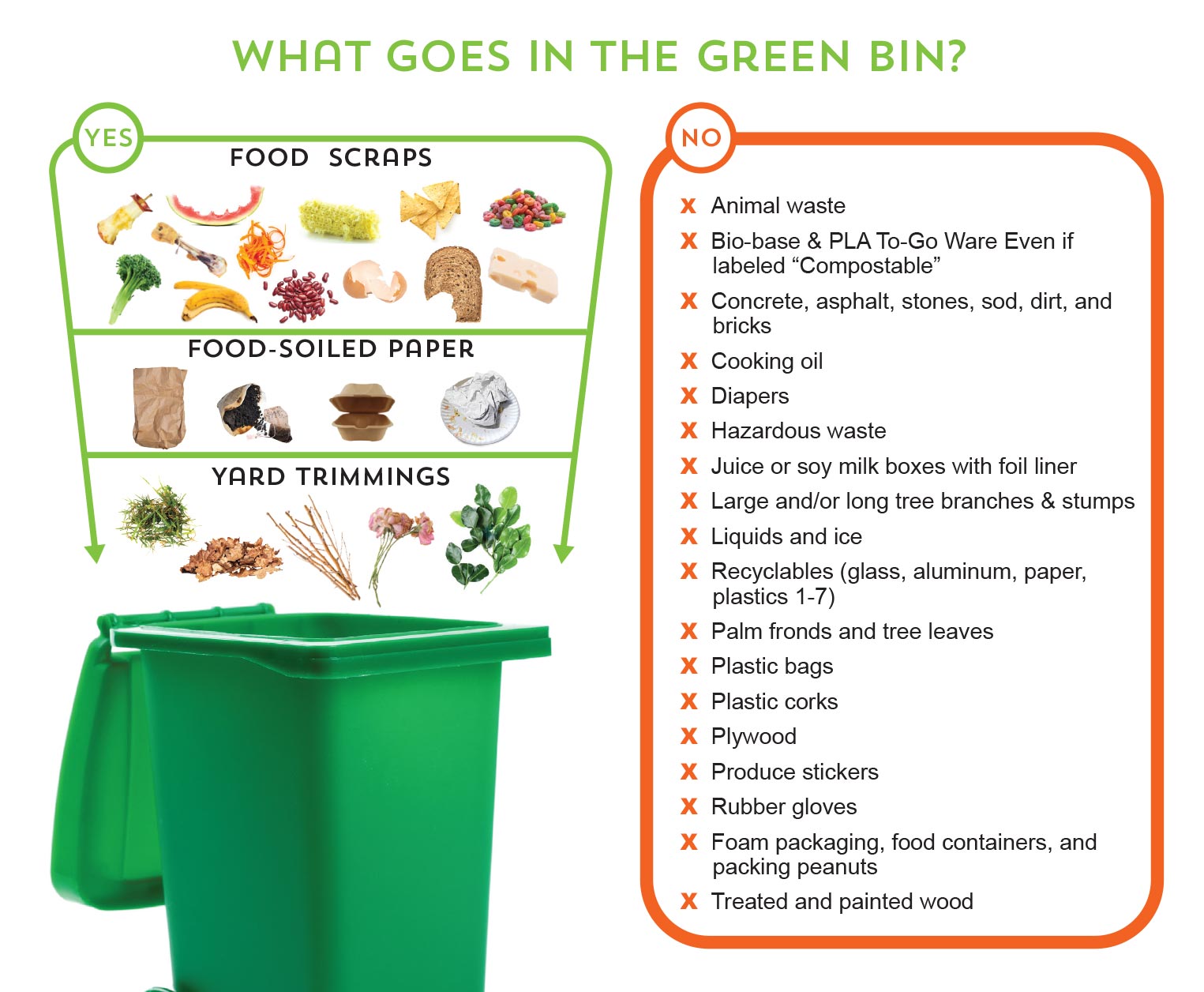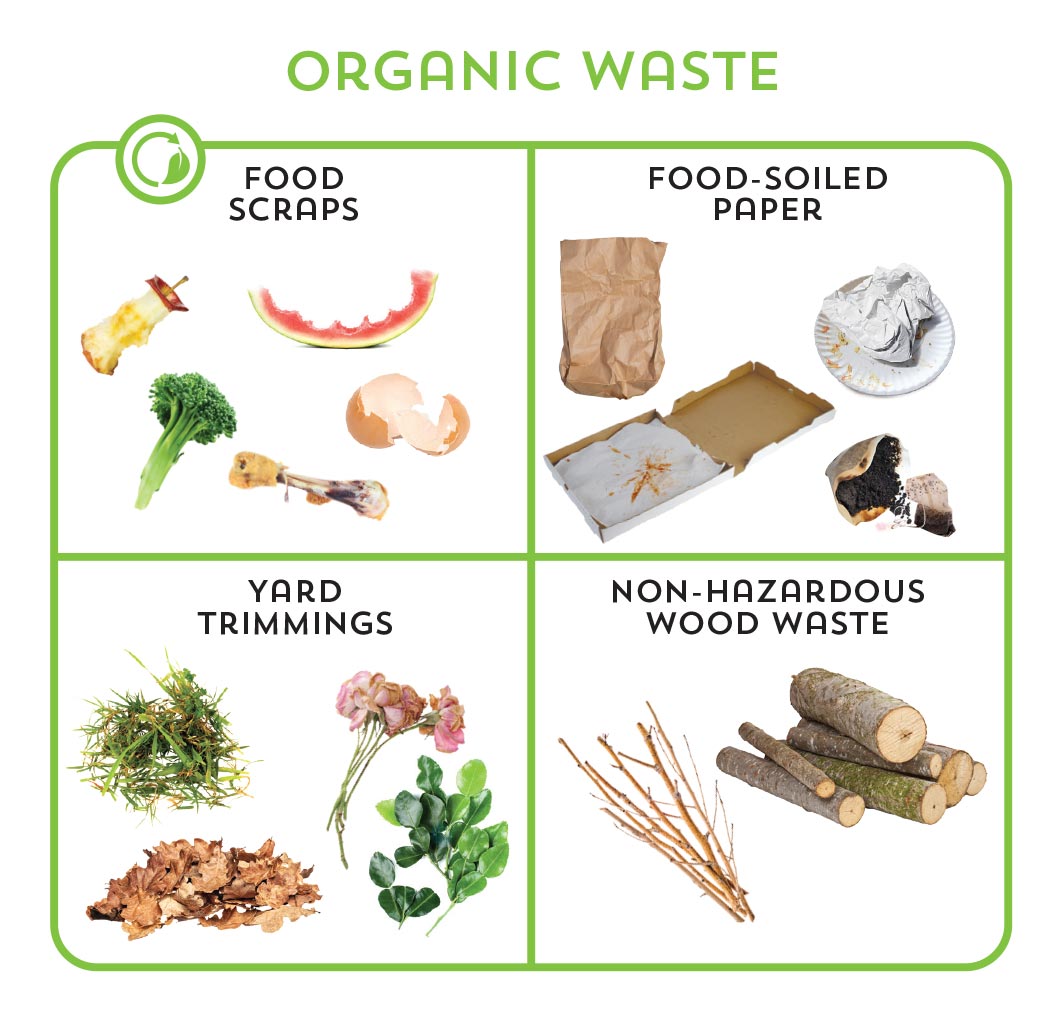SB 1383 – organic waste recycling and surplus food recovery
SB 1383
WHAT IS SB 1383?
In the beginning of 2022, California is implemented a statewide organic waste recycling and surplus food recovery to reduce emissions of methane from food and organic waste in landfills. Methane is one of the most potent greenhouse gasses and a major contributor to climate change. Landfills are the third-largest source of methane in California, emitting 20% of the state’s methane. Organics like food scraps, yard trimmings, paper and cardboard make up half of what Californians dispose of into landfills.
This new strategy is part of California’s Short-Lived Climate Pollutant Reduction Law, also known as SB 1383. SB 1383 requires the state to:
- Reduce organic waste disposal 75% by 2025.
- Rescue at least 20% of currently disposed surplus edible food by 2025.
WHY SB 1383?
California is experiencing extreme weather events such as: record-breaking temperatures, longer fire seasons, droughts, and rising sea levels. These extreme weather events could be caused by too much greenhouse gas in the atmosphere, so named because they trap the sun’s heat and warm the planet.
When compostable materials such as food scraps and paper products break down in a landfill, they produce methane (CH4)—one of the most potent greenhouse gases in Earth’s atmosphere.
In San Mateo County almost 71% of all waste landfilled by San Mateo County is compostable material. Meeting the goals of SB 1383 for 75% requires diversion of about 292,000 tons per year. While this goal may seem big, each one of us has the power to help reach this goal.
WHO DOES SB 1383 APPLY TO?
SB 1383 applies to all residents (single-family homes and apartments/condos), businesses, educational institutions, and non-local entities (special districts, state/federal facilities, and prisons).
-
How does it impact me as a resident?
All residents living in single-family homes in certain high population areas in the unincorporated areas of San Mateo County are required to subscribe to a three cart or two cart curbside organics service. If you do not have compost service, please contact your local hauler to set it up.
-
How does it impact me as a business?
If you own a business or apartment/condo complex (of five units or more), you are required to:
- Subscribe to and participate in the compost service via your local hauler. Alternatively, self-haul is allowed as long as records of receipts and weight tickets are kept.
- Provide collection containers for compost and recyclables to employees, contractors, tenants, and customers.
- There must be access to an adequate number, size, and location of containers with correct labels.
- Containers for compost and recyclables must be provided in all areas where garbage containers are present, except in restrooms or inside multi-family property units.
- Container bodies or lids shall conform to the following color scheme: gray/black for garbage, blue for recycling, and green for compost materials. In addition, containers shall have labels with graphic images to indicate primary materials accepted and prohibited. Recology San Mateo County may be able to provide some containers and labels at no additional cost.
- Annually provide educational information about the requirements to compost and recycle including how to sort properly between the three waste streams. The haulers can provide educational materials for your employees and apartment/condo tenants.
- Periodically inspect recycling and compost containers and inform employees if contamination is found.
Businesses that offer food, such as restaurants or delis, must provide indoor containers for recycling waste, recycling and organics collection for use by their customers.
Certain large food-generating businesses also have new edible food recover requirements. More information on these requirements can be found here.
*Businesses and multi-family properties may be granted a waiver and exempted from some requirements if they can provide documentation and evidence to support one of the waiver options.



